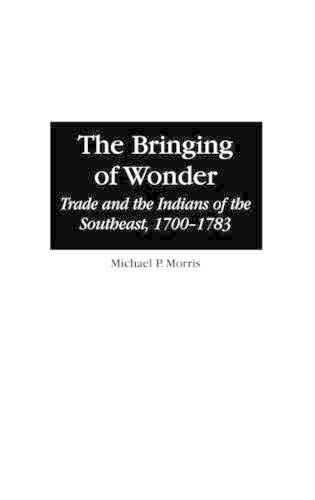
The Bringing of Wonder: Trade and the Indians of the Southeast, 1700-1783
(Hardback)
Publishing Details
The Bringing of Wonder: Trade and the Indians of the Southeast, 1700-1783
By (Author) Michael Morris
Bloomsbury Publishing PLC
Praeger Publishers Inc
30th April 1999
United States
Classifications
Tertiary Education
Non Fiction
Cultural studies
History of the Americas
975.00497
Physical Properties
Hardback
176
Width 156mm, Height 235mm
454g
Description
In the relations between colonial European traders and the Indians of the southern backcountry, trade was a powerful manipulative tool used by both sides in their attempts to control each other. This anthropological and sociological study examines how European traders sought out native women as cultural instructors, translators, and sexual companions. The network of native women, fur traders, and colonial diplomats functioned as an invisible social, political, and economic web throughout the backcountry. Although this web was an integral part of the colonial struggle for the region, it is often overlooked or ignored in conventional histories. Women played a key role in this system of economic exchange. They benefitted materially from this arrangement, while the traders enjoyed increased political power as a result of the cohabitation. These Anglo-Indian unions helped to impose Euroamerican values on native societies, and, in part, the women functioned as unofficial diplomats for their people. Colonial governments hoped that the efforts of these frontier traders would impose stability on the tribes, but the profit-seeking of many such traders often resulted in bloody conflict instead.
Author Bio
MICHAEL P. MORRIS is a full time Instructor of History at the University of South Carolina-Aiken./e His previous publications include articles on Native Americans and Trade in the American Southeast.
